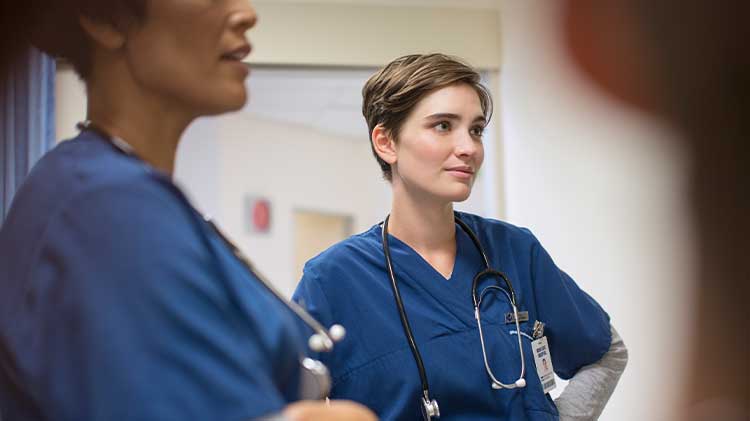My Mauritian Medical Elective
23 Jun 2016

Organising the elective
I found out about opportunities in Mauritius from The Electives Network (TEN), and was lucky enough to have a friend at my university who was originally from there. I was hoping to compare the doctor-patient relationship in Mauritius with the UK for my elective project. As Mauritius has a relatively new healthcare system, I felt it would be the perfect opportunity to experience something very different.
As a start to organising my elective, I started emailing and phoning contacts listed on TEN website nine months prior. In the end, it turned out that we posted our applications to the Ministry of Health and heard back by post within two months. The next step was getting vaccinations sorted, booking flights (approximately AUD$1,500 with a stopover in Dubai) and shopping!
A few months later, my friend and I flew in to Mauritius and I still remember the view from the aeroplane. The breathtaking waters were the coolest blue I’d ever seen, almost as if someone had spilled some blue food colouring in the water! I had some trouble at the barriers as I had declared I wasn’t there for business or a holiday, but for my elective. I was glad I had copies of all my correspondence with the hospital, and my friend being a native helped to get it clarified. I was advised to mark “holiday” on the entry form next time.

At the Dr Jeetoo Hospital, Port Louis
The next four weeks went by in a wonderful blur. I spent my weekday mornings at Dr Jeetoo Hospital, a large public hospital in the middle of the capital, Port Louis. It was much larger than I initially expected, with three floors of wards, outpatient clinics, an Accident and Emergency department, and maternity and paediatric departments too.
Although recently renovated, it often got stuffy as it was lacking in air-conditioning. As part of my uniform, I was required to wear a white coat which I had purchased from the UK before departure. Under the white coat, many staff would wear sandals and casual clothes. However, a “bare below the elbows” policy was in place.
On the first day, we met our supervisor who asked us what specialties we wanted to rotate through. As my project was focused on medical ethics, I opted to rotate through different specialties each week. In hindsight, a week on each specialty wasn’t enough to really become part of the team and get stuck in, so I had a fairly superficial view of each rotation.

The first two weeks
During my first week in Obstetrics and Gynaelogy, I had plenty of opportunities to observe natural births and C-sections. Juniors were friendly and willing to let me observe, often going to the extent of teaching in English. My skills at speaking Creole were non-existent and it would have been handy to know some basic French. The Consultant also ran a clinic for scanning pregnant women, which turned out to be a good learning opportunity. It was specifically useful for my project, as basic principles taken for granted in the UK – such as privacy and confidentiality – were lacking.
In the extremely busy Accident and Emergency department for my second week, there were very few learning opportunities. As health care in A&E was free of charge, people would often attend for relatively general complaints. A&E was split into Medical and Surgical, with a bay equivalent to an Acute Medical Unit. What I found most useful from this rotation was the opportunity to see clinical signs – such as a child presenting with meningitis, torted testes and abscesses requiring drainage.
The last two weeks
In the General Medical Ward, the morning ward rounds consisted of up to 60 patients, with many outliers. This meant ward rounds were rushed and prolonged, often going on till late afternoon. Again, although documentation was all in English, patients mainly communicated in Creole, which meant I was unable to get very involved. I did see some interesting clinical signs, but nothing radically different from what I had seen in the UK. After the ward round, it was often worth sticking around to get advice from the Consultant about good patients to examine.
My final rotation with the Ambulance department was the most exciting rotation, providing a very different perspective of Port Louis. Most of my time was spent in Resuscitation, waiting for a call-out. When the calls did arrive, they were unpredictable. The hospital only had one ambulance, much smaller than the ones in the UK and not as well equipped. I travelled to more deprived areas of Port Louis and witnessed a few cardiac arrests with attempts at resuscitation. Once, as I watched an elderly patient climb up the steps of the ambulance on her knees and subsequently go into cardiac arrest, I was reminded of how fortunate we are in the UK to have basic luxuries, such as well-equipped ambulances with ramps and wheelchairs.
A unique educational experience
While I gained a lot of material for my reflective project, I also learned a lot about myself and the kind of doctor I’d like to be in the future. The placement itself was useful as well as relaxing. Apart from signing into the register every morning, there wasn’t much structure or supervision to the program.
Although I occasionally wandered into other departments when there wasn’t much going on in my allocated rotation, this was very much dependent on the staff. For example, the Consultant on the Paediatrics ward was very keen to teach, especially after he learned I was from the UK. Many Consultants trained abroad (particularly in France) as Mauritius didn’t have a medical school in place until relatively recently. I would recommend you seize any opportunities that come your way, particularly when doctors are keen to teach.
Exploring Mauritius
I spent many afternoons and weekends exploring the rest of Mauritius. Public transport is efficient and relatively cheap. As I travelled by car and lived with a friend in her family’s home, I can’t offer advice on taxi fares or accommodation rates.
Mauritius is a very diverse country. Majority of the people are of mixed heritage, and many are bilingual although Creole is the primary language. Getting a basic understanding of their ancestry would be useful before considering an elective here. While the majority of Mauritians are Hindus, many are also Muslims and you will often hear the call to prayer echoing from the mosques. Street food and restaurants serve halal food, unless stated otherwise.
In summary, Mauritius is a stunning island. If you want a relaxed, easygoing, but also relatively useful elective, then this is the place to go. But don’t forget to learn some French before you do!




Mehreen Mehmood
First Year Intern, Trauma and Orthopaedics
Ninewells Hospital, Dundee, UK
Mehreen was a final year medical student at the Birmingham University (UK) when she undertook this elective.
The Electives Network (TEN)
TEN is an online resource providing all the assistance you need to plan your dream elective. TEN gives you personalised support and access to the latest information, interactive tools, case studies and much more. As a Member of MDA National, you have free access to TEN. So take advantage of this opportunity to make your elective a truly memorable experience!
Professional boundaries in healthcare - Part 1
Boundaries with patients present in numerous ways every day and all health practitioners
11 Aug 2025
Understanding Professional Medical Indemnity Insurance
Do you understand the ins and outs of professional medical indemnity insurance?
11 Aug 2025
Professional boundaries in healthcare - Part 2
Boundaries with patients present in numerous ways every day and all health practitioners
11 Aug 2025
Understanding changes to the Fair Work Act
What are the changes to the Fair Work Act and what is my role?
22 Jul 2025






